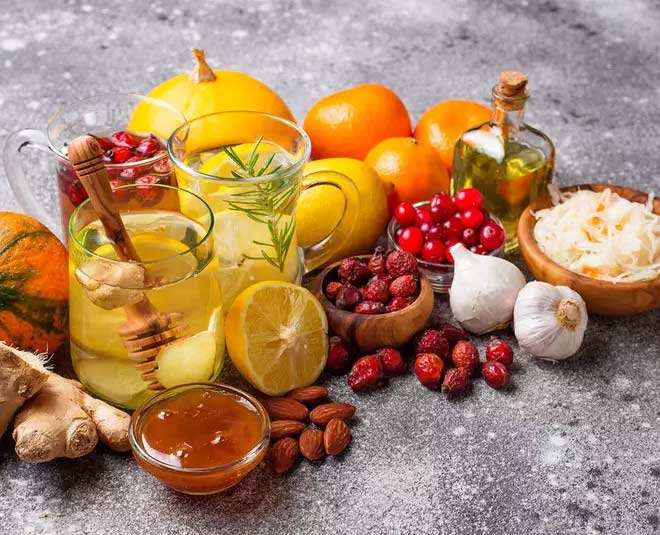Everyone should consume an appropriate, balanced diet. It must contain all nutrients in the correct quantities that your body requires to perform its daily tasks.
However, young children and pregnant, menstruating, or nursing women have more dietary needs.
Alongside wearing more layers of clothing to keep warm in the cold winter months, eating an appropriate diet as well as meeting the body’s increasing demands for nutrients, is crucial for maintaining your energy levels, metabolism, and many other elements.
Vitamin C
Vitamin C is a well-known vitamin to boost immunity and is an essential ingredient to fight off diseases like the common cold and the flu in the winter months.
A healthy amount of vitamin C in your body can reduce the risk of heart disease as it protects memory, reduces the risk of developing chronic illnesses and lowers the levels of uric acids in blood, and aids in controlling high blood pressure that is high.
Vitamin C’s capacity to boost immunity is especially beneficial in the post-COVID-19 time frame as well as throughout winter.
If consumed in adequate amounts, Vitamin C protects your body from viruses, colds, or coughs. It also helps prevent influenza. Experts recommend eating citrus fruits like lemons, strawberries, oranges, and kiwis in order to help keep the levels of vitamin C within the body at a steady level.
Iron
Iron is a nutrient that provides our favorite comic book character, Popeye an enormous size as well as strength. It is a sturdy structure of the human body.
The body requires iron for the production of DNA and for the transport of oxygen. In winter, we require iron more than anything else since it aids in ensuring that the cells to absorb oxygen and keep us energetic throughout the day.
B-12 vitamin
Your mood is greatly affected by vitamin B12. Ingestion of nutrients such as vitamin B12 can help prevent seasonal mood disorders (SAD).
A yearly recurrence that is a result of seasonal affective disorder (SAD), typically during the winter months, is widely known. Because it is responsible for the creation of mood-regulating chemical substances in the brain, Vitamin B12 helps fight this disease and keep you satisfied.
Vitamin E
There are eight distinct varieties that are Vitamin E, a fat-soluble vitamin that acts in the role of an antioxidant.
Maintaining the body’s levels of vitamin E in check reduces the risk of developing cancer and reduces the stress of oxidative aging. It also manages diabetes, prevents eye-related ailments, and can help to reduce the symptoms of osteoporosis.
Because vitamin E is abundant, it is crucial for many skin and hair-care treatments.
This vitamin is especially crucial in winter, because the climate is dry. Lack of humidity in the air can harm hair and skin.
Consuming foods that are rich in vitamin A, such as cashews, almonds, cauliflowers, pumpkin seseedssunflower seeds, andalmondss will provide energy to your body and aid in maintaining the proper quantities of this vitamin.
Vitamin A:
A natural antioxidant essential for the body’s health. This vitamin can help prevent illnesses like night blindness, vision degeneration, and also helps to maintain healthy eyesight.
Vitamin C helps fight various forms of cancer. It also assures the immune system is functioning in a way that is optimally.
Vitamin C promotes healthy bones and can help prevent joint pain that is common during cold winter days. Foods like carrots, spinach, sweet potato, pumpkin, and flax seeds boost the health of your reproductive system and boost immunity.
Final Words:
The above points highlight the importance of incorporating important nutrients into your winter food plan. These nutrients will help you through the winter months and can also enhance the long-term health of your body.
